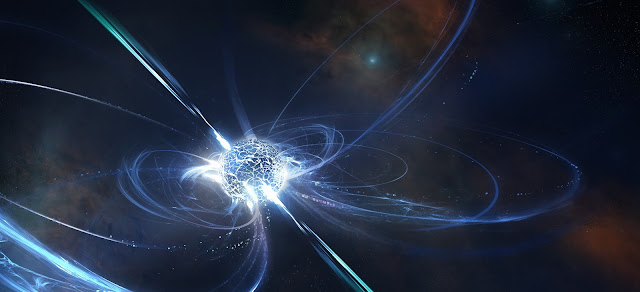How will the Universe end.....
How will the universe end…..
One theory for dark energy proposes the universe may not expand perpetually, but rather instead collapse in a "big crunch," after which time ceases to exist. Presently, according to another investigation, this could happen much sooner than anyone expected—although still on the request of billions of years away. For nearly a century, cosmologists have been fixated on the topic of whether gravity will eventually cause the universe to collapse in on itself in a reversal of the Big Bang, or on the off chance that it will expand everlastingly until the point when the stars wear out. Or then again as Robert Frost put it, end in flame or ice.
The revelation of dark energy appeared to have settled the inquiry. In the event that the universe isn't just expanding, however accelerating in its expansion because a capable power is beating gravity at large distances, then how would it be able to ever switch? Instead, the scattering may be relied upon to happen faster and faster until the galaxies, and maybe individual stars, put some distance between each other. In Physical Review Letters, in any case, two physicists have attempted to answer the still-unsolved inquiry of what dark energy actually is. Their model proposes dark energy will dominate the universe in the blink of an eye before a "turnaround," leading to an eventual collapse. While they cannot set a date on when this turnaround will happen, a natural decision for the qualities of powers proposes it could be soon.
"A solitary, technically natural decision for the incline guarantees that the collapse is up and coming and is gone before by the present stage of enormous acceleration," compose physicists Nemanja Kaloper from the University of California, Davis, and Antonio Padilla of the University of Nottingham. While their answer is elegant, it isn't clear whether Kaloper and Padilla are actually portraying the universe we live in. "It's too early to say on the off chance that it will stand the trial of time, however so far it has confronted examination," Padilla told Phys.org.
The work depends on a past paper by the pair, which tackled the topic of why observations of the measure of the cosmological constant are uncontrollably out of keeping with demonstrated outcomes. Their answer is vacuum energy sequestering, an idea they portray as an "extremely basic reformulation of General Relativity" where the energy that exists all over the place (vacuum energy thickness) in the universe is kept from adding to the curvature of the universe and therefore impacting gravity. The work makes the cosmological constant equal to the average of all the matter-energy thickness in the universe that has, or will, exist.
The pair claims their new work is "consistent with a variety of inflationary models that make the universe big and old." Under their model, the lifespan of the universe is dictated by the slant at which the vacuum energy is changing. The authors claim that a normal value of the incline of 10-39 fits well with the observations of the current expansion. Just an exceptionally exact measurement of the incline will disclose to us when the universe will start contracting, however, Padilla told Phys.org that "Early indications propose the collapse will kick in a couple of many billions of years, yet we have yet to legitimately check this."





Comments
Post a Comment